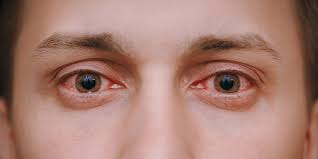There is a multitude of potential health conditions that can affect our aging parents, including arthritis, osteoporosis, hearing loss, and dementia. One of the most common areas for the elderly to have difficulties with is their eyesight. There are many different eye conditions that they are at risk of suffering from, with vision being a particularly important factor to be careful of. This is because of the knock-on effect it can have on other areas of health, for example, by increasing the risk of falls or other injuries.
This is why it’s important to ensure that your elderly parents are visiting an ophthalmologist every year or two – and because catching eye conditions early is key for successful treatment. In addition to booking them appointments, there are certain signs you can look out for that may indicate there’s an issue that needs investigating.
Cloudy Vision
If your mom or dad is complaining of cloudy vision, this could be a sign that they are developing a cataract. Cataracts are extremely common amongst the elderly, with over half of the US having experienced one by the time they reach 80 years old. They develop slowly, but will eventually interfere with vision, so it’s important to get them treated early. The most common treatment for cataracts is surgery and there are many benefits of cataract surgery to consider. This involves removing the clouded lens and replacing it with a new one, which results in sharper vision, brighter colors, and less eye strain. Beyond these immediate improvements, this procedure can significantly enhance overall quality of life. Many patients experience a renewed sense of independence, as they can resume activities they once struggled with, such as reading, driving, and enjoying outdoor activities. The best part is that the surgery often requires only a brief recovery period, allowing individuals to return to their daily routines quickly. You can read about cataract surgery in detail on the Web if you wish to gain more information on this topic.
Eye Pain
Severe eye pain can be a sign of acute angle-closure glaucoma, also known as narrow-angle glaucoma, which is a serious disease that can damage the optic nerve and result in loss of vision or even complete blindness. It’s often the result of abnormally high blood pressure within the eye, and if your parents already have high blood pressure, heart disease, or diabetes, it can increase their risk of suffering from glaucoma. The condition can sometimes be treated just with eye drops; however, in more serious cases, surgery may be required. The sooner the condition is caught, the better the chances of preventing additional vision loss, so be sure to take your parents to the doctor quickly if they mention eye pain.
Blurry vision
If your elderly parent mentions that their eyesight is becoming blurry, particularly near the center of their vision, it could be a sign of age-related macular degeneration. Other symptoms of this include blank spots in vision, colors seeming duller, and seeing straight lines as wavy or crooked. Macular degeneration is the leading cause of permanent and serious vision loss among people over the age of 60, so it is important to be aware of. You can also help your parents to reduce their risk of developing the condition by encouraging them to exercise, eat healthily, and quit smoking. Often there is no treatment for age-related macular degeneration, but an eye specialist can recommend many options that may help. These include vitamin supplements and vision aids.

